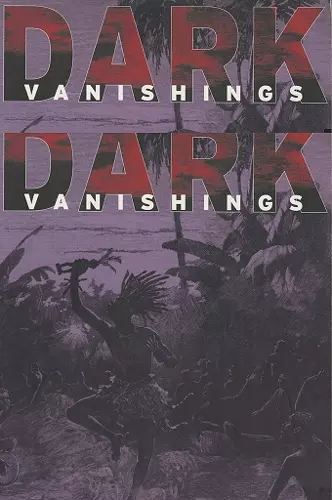Dark Vanishings
Discourse on the Extinction of Primitive Races, 1800–1930
Format:Paperback
Publisher:Cornell University Press
Published:15th Aug '03
Currently unavailable, and unfortunately no date known when it will be back

Patrick Brantlinger here examines the commonly held nineteenth-century view that all "primitive" or "savage" races around the world were doomed sooner or later to extinction. Warlike propensities and presumed cannibalism were regarded as simultaneously noble and suicidal, accelerants of the downfall of other races after contact with white civilization. Brantlinger finds at the heart of this belief the stereotype of the self-exterminating savage, or the view that "savagery" is a sufficient explanation for the ultimate disappearance of "savages" from the grand theater of world history.
Humanitarians, according to Brantlinger, saw the problem in the same terms of inevitability (or doom) as did scientists such as Charles Darwin and Thomas Henry Huxley as well as propagandists for empire such as Charles Wentworth Dilke and James Anthony Froude. Brantlinger analyzes the Irish Famine in the context of ideas and theories about primitive races in North America, Australia, New Zealand, and elsewhere. He shows that by the end of the nineteenth century, especially through the influence of the eugenics movement, extinction discourse was ironically applied to "the great white race" in various apocalyptic formulations. With the rise of fascism and Nazism, and with the gradual renewal of aboriginal populations in some parts of the world, by the 1930s the stereotypic idea of "fatal impact" began to unravel, as did also various more general forms of race-based thinking and of social Darwinism.
Dark Vanishings should interest historians of ethnology and of cultural anthropology in general.... Of particular importance is the question of whether the notion of race, however defined, forged Europeans into racists.... The bibliography has value for historians of biology, of economics, and of English literature, not the sort of bedfellows one might have expected before reading Dark Vanishings. Sociologists of science, sure to find in Brantlinger's narrative a sociology of racism in the guise of science, round out the group of scholars who will benefit from reading Dark Vanishings.
* Isis *Patrick Brantlinger's argument in Dark Vanishings is straightforward: from 1830 onwards, economists, pioneering anthropologists, natural scientists and literary writers believed that 'primitive' peoples were doomed to extinction.... Belief in the inevitability of the natives' fall assuaged guilt about the depopulating effects of colonialism.... A significant achievement in Dark Vanishings is Brantlinger's partial, conditional rehabilitation of the race theorists, Robert Knox and Alfred Wallace. Brantlinger shows that, although frequently ludicrous and ill-willed, such writers' works need to read with care, as they influenced still-extant concepts about First World superiority.
* Times Literary Supplement *The 'dark vanishings' of Patrick Brantlinger's most recent book are the presumed extinctions, especially self-extinguishings, of people not deemed to be, or not deemed to be capable of being, civilized, of those who cannot participate in Western Progress. Dark Vanishings is obviously required reading for anyone interested in Victorian studies of race and empire.
* English Literature in TransitiISBN: 9780801488764
Dimensions: unknown
Weight: 454g
272 pages